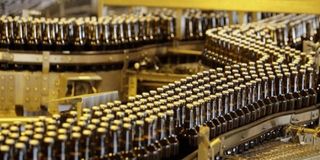TBL dividend up 20 per cent

What you need to know:
In total, reports shows that the dividend grew by 16 per cent to reach Sh176.292 billion during the year ending March 2016 from the Sh151.7 billion that was issued last year
Dar es Salaam. Tanzania Breweries Limited (TBL) Group shareholders have approved a dividend of Sh600 per share, a 20 per cent rise from last year’s Sh500/share, thanks to an impressive performance in the year ending March 31, 2016.
In total, the dividend grew by 16 per cent to reach Sh176.292 billion during the year ending March 2016 from the Sh151.7 billion that was issued last year, stemming from the beer brewer’s performance for the year ending March 31, 2015.
In August this year, TBL announced that its profit rose by six per cent to Sh228.98 billion for the year ending March 2016 compared to Sh216.55 billion that was registered in the previous year.
Despite facing a challenging market and economic conditions, the maker of Kilimanjaro Premium Lager and Safari Lager among others, registered a four per cent revenue increase to Sh1.11 trillion from Sh1.073 trillion of the preceding year.
The growth, according to its financial statement, was mainly driven by volume growth – fuelled by price stability – as the government tread slowly in excise duty increases and thus allowing Tanzanians to have enough disposal incomes.
Speaking during the TBL’s 43rd annual general meeting in Dar es Salaam yesterday, the firm’s board chairman Cleopa Msuya called on the government to consider moving slowly in excise duty increases as a way of creating conducive business environment and enabling the growth of enterprises.
“When the government increases its tax rates frequently, the commodity price also increases and the final consumer is thrown out of the game,” he said.
He said although the government did not increase excise duty rates, the economy continued to suffer from factors like lack of liquidity; a 25 per cent currency devaluation; a below inflation household income growth, and a stagnant agricultural sector growth which reduced the disposable incomes and consumption levels.
Meanwhile, Mr Msuya said the company’s plans to establish a malt farm for raw materials gleaned from barley is still under discussion with the government.
He said that the plan is to develop a barley farm in Iringa in order to substitute imports of their raw materials to locally-sourced ones which normally require that the government allow an exercise remission to enable the company make profit.
However, he said that it does not exist and therefore they were still in discussion with the government to see if that can be done.




